Choosing the right helmet for your motorcycle ride can be a puzzle. Did you know there’s often debate among riders about full-face versus modular helmets? In this article, we’ll dive into these two types of helmets, breaking down their pros, cons and features to help you make an informed choice.
Ready to roll? Let’s gear up!
Key Takeaways
- Full-face helmets provide the highest level of protection for motorcycle riders, shielding the entire face, including the chin, from potential injuries in case of an accident.
- Modular helmets offer more convenience and breathability with their flip-up design, making them suitable for riders who need to communicate face-to-face or prefer fresh air during stops.
- Comfort varies between full-face and modular helmets – full-face helmets provide advanced ventilation systems while eyeglass wearers often find it easier to wear glasses with modular helmets.
The Evolution of Motorcycle Helmets
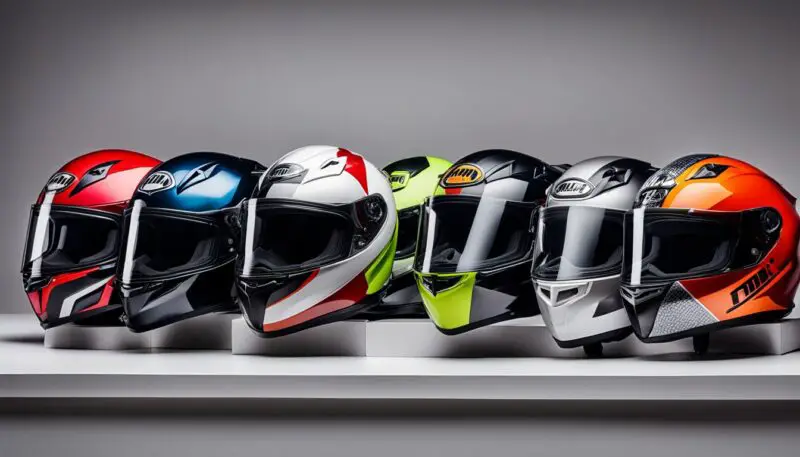
Motorcycle helmets have changed a lot over time. In the early days, they were simple caps made of leather. They gave little safety to the rider’s head in case of a crash. With helmet technology getting better, riders began to see more solid helmets in the 1950s and 1960s.
Bell Star was one well-known full face helmet that came out during this time.
In recent years, we have seen even more change with new styles like modular motorcycle helmets coming up. These are popular among many riders because they let you lift up the front visor for fresh air or talk face-to-face when stopped.
Riders who wear eyeglasses also find these easier to use with their glasses on. As helmet technology keeps getting better, riders can look forward to safer and more comfy rides in the future.
Full-Face Motorcycle Helmets: An Overview
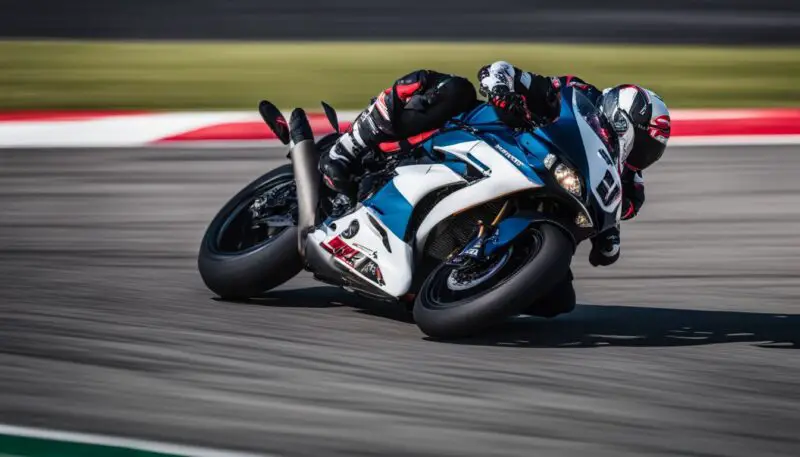
Full-face motorcycle helmets provide complete head protection, including a chin bar for added safety in the event of a crash.
Pros & Cons (Full-Face Motorcycle Helmets)

Full-face motorcycle helmets are the traditional choice for most riders due to their superior protection and coverage. However, they also come with their own set of drawbacks. It’s important to weigh these pros and cons to make an informed decision about the helmet type that suits your needs the most.
| Pros | Cons |
|---|---|
| Full-face helmets provide the best protection for a motorcycle rider’s head, shielding the entire face, including the chin, from potential injuries in case of an accident. | A full-face helmet can be less comfortable in hot climates as it completely covers the face, making it less breathable. |
| The encompassing design of a full-face helmet also serves to reduce noise during the ride and increase aerodynamics. | For riders who wear eyeglasses, a full-face helmet can be a bit difficult to put on, as the glasses need to be taken off first. |
| In terms of weight, full-face helmets tend to be lighter than modular helmets, reducing neck strain during long rides. | Tinted sun visors, while available in some full-face helmets, are less common than in modular helmets which often come with built-in ones. Riders would have to purchase and attach them separately. |
In conclusion, a full-face helmet provides the maximum level of protection, reduced noise, and better aerodynamics, albeit at the expense of some convenience and comfort.
Modular Motorcycle Helmets: An Overview
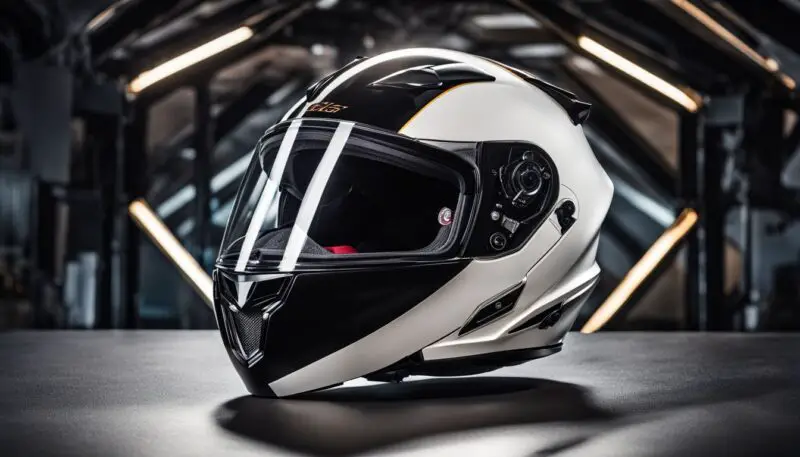
Modular helmets, also known as flip-up helmets, have gained popularity among motorcycle riders who desire the convenience and breathability of an open-face helmet without compromising on protection.
Pros & Cons (Modular Motorcycle Helmets)
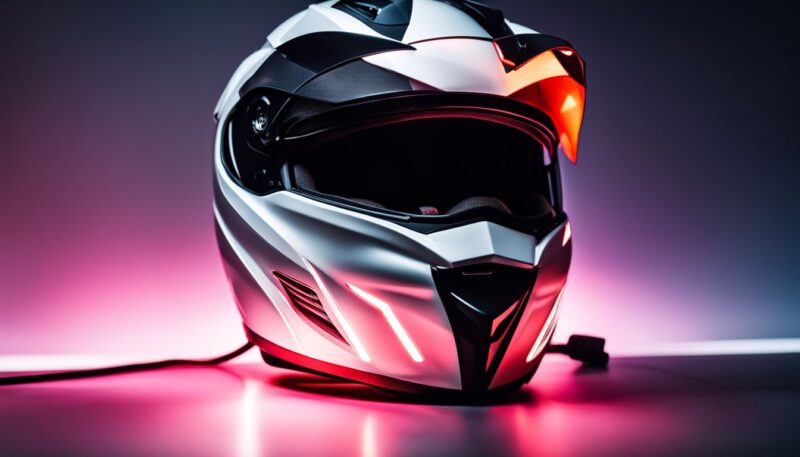
Modular motorcycle helmets, also known as flip-up helmets, offer a unique blend of protection, comfort, and convenience. Let’s compare and contrast the benefits and drawbacks of these versatile helmets.
| Pros | Cons |
|---|---|
| Modular helmets provide the convenience and breathability of a three-quarters helmet while maintaining solid protection. | While they offer good protection, modular helmets fall slightly short of the absolute safety provided by full-face helmets. |
| Riders can lift up the front visor for fresh air, making modular helmets suitable for hot climates. | Despite their versatility, modular helmets can be bulkier and heavier than their full-face counterparts. |
| Modular helmets are preferred by riders who need to communicate face-to-face while stopped, such as couriers and instructors. | Though convenient, the hinge mechanism in modular helmets can sometimes be a weak point in a crash. |
| These helmets are easier to wear with eyeglasses compared to other types of helmets. | The convenience features of modular helmets may increase wind noise in certain riding scenarios. |
| Many modular helmets come with built-in tinted sun visors, which are less common in full-face helmets. | Typically, modular helmets are more expensive to produce and purchase due to their complex design. |
Remember that the best helmet for you ultimately comes down to personal preference, riding style, and comfort needs. Whether you choose a modular helmet or a full-face helmet, safety should always be your top priority.
Safety Comparison: Full-Face vs. Modular Helmets
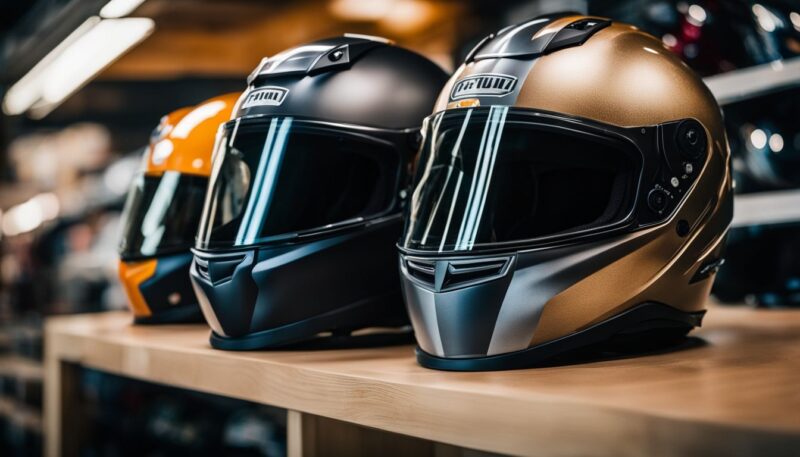
When it comes to safety, both full-face and modular helmets provide substantial protection, but with some notable differences. Here’s a comparative analysis in detail.
| Full-Face Helmets | Modular Helmets | |
|---|---|---|
| Protection | These helmets provide the best protection for a motorcycle rider’s head. | Offer good protection but not as comprehensive as full-face helmets when the chin bar is lifted. |
| Face Guard | Fixed face guard that can’t be moved. | Chin bar can be lifted for fresh air, but when open, it increases the risk of serious injury. |
| Detachment | Least likely to come off during an accident. | Higher chance of the chin bar detaching during a crash. |
| Comfort & Convenience | Limited ventilation can lead to discomfort in hot climates but offers unparalleled safety. | More versatile with better ventilation but potentially compromises safety when open. |
In summary, full-face helmets offer superior protection, especially for the chin and jaw, areas often impacted in a crash. On the other hand, modular helmets, while providing satisfactory protection, can have some safety concerns, particularly when ridden open. It’s essential to keep safety paramount when choosing between these helmet types.
Comfort Comparison: Full-Face vs. Modular Helmets
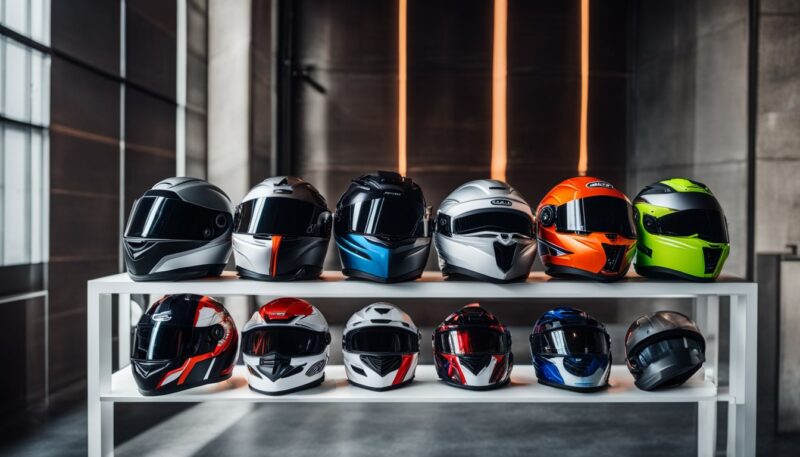
When it comes to motorcycle helmets, comfort is crucial. Below is a comparison table showcasing the comfort aspects of both Full-Face and Modular Helmets.
| Attribute | Full-Face Helmets | Modular Helmets |
|---|---|---|
| Ventilation | Modern full-face helmets come with advanced ventilation systems, ensuring steady airflow during long rides. | The front face of modular helmets can conveniently be popped open for fresh air, especially in hot climates. |
| Eyeglass compatibility | Wearing eyeglasses with a full-face helmet might pose some difficulties considering its tight seal. | Eyeglass wearers often prefer modular helmets due to the ease with which glasses can be worn underneath. |
| Communication | Full-face helmets may require additional investment for a built-in communication system and features like Bluetooth. | Modular helmets are favored by riders who need to communicate face-to-face while stopped. |
| Weight | The streamlined design of full-face helmets incorporates fewer mechanisms, resulting in a lighter weight and therefore higher comfort during long rides. | Modular helmets are generally heavier due to the added hinges and mechanisms, which may affect comfort on longer rides. |
Comfort is subjective and varies from rider to rider. It’s important to consider these factors and choose the helmet that best suits your needs and preferences.
Noise & Aerodynamics: Full-Face vs. Modular Helmets

When it comes to noise and aerodynamics, both full-face and modular helmets have their distinct advantages and challenges. Our comparison table below will help you understand these differences more clearly.
| Full-Face Helmets | Modular Helmets | |
|---|---|---|
| Noise | Because of their streamlined design, full-face helmets significantly reduce wind noise, providing a quieter ride. | Modular helmets, while offering some noise reduction, might not be as quiet as full-face helmets due to their flip-up design. |
| Aerodynamics | Full-face helmets offer superior aerodynamics due to their sleek and uninterrupted design, reducing wind resistance especially at high speeds. | Modular helmets might not be as aerodynamic because of their flip-up design, but they still provide decent aerodynamics on the road. |
In conclusion, your choice between full-face and modular helmets should essentially depend on your individual preference, your riding style and the conditions under which you usually ride.
Weight Comparison: Full-Face vs. Modular Helmets
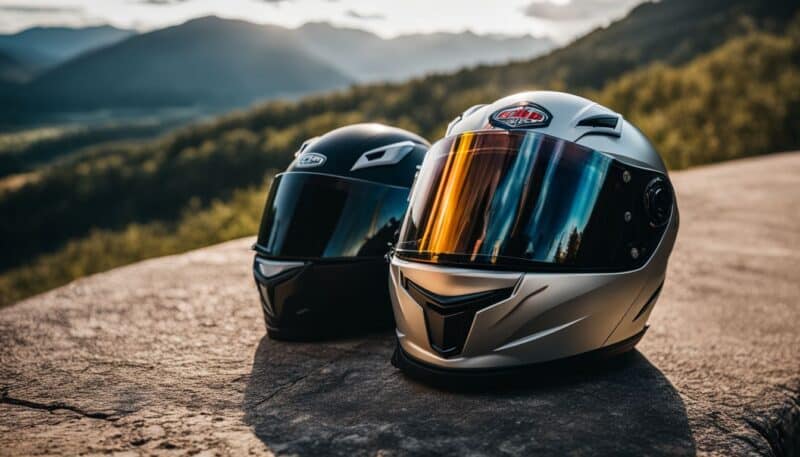
When it comes to the weight of the helmets, there are noticeable differences between full-face and modular designs. These can affect the comfort and fatigue level of the rider during longer rides.
Let’s delve into the details:
| Helmet Type | Weight Range | Impact on Rider |
|---|---|---|
| Full-Face Helmets | Typically lighter | Lighter weight reduces neck and shoulder fatigue, especially on longer rides. Can potentially offer better control and maneuverability of the motorcycle due to less strain on the rider. |
| Modular Helmets | Slightly heavier | Increased weight due to additional components like the hinge mechanism for lifting the face shield and chin bar. May lead to increased fatigue on long rides. However, many riders value the versatility and convenience of being able to flip the face shield up at stops. |
Remember, the weight of the helmet alone should not determine your choice. Always consider other factors such as overall comfort, safety features, and personal riding style.
The Debate: Full-Face or Modular Helmet?
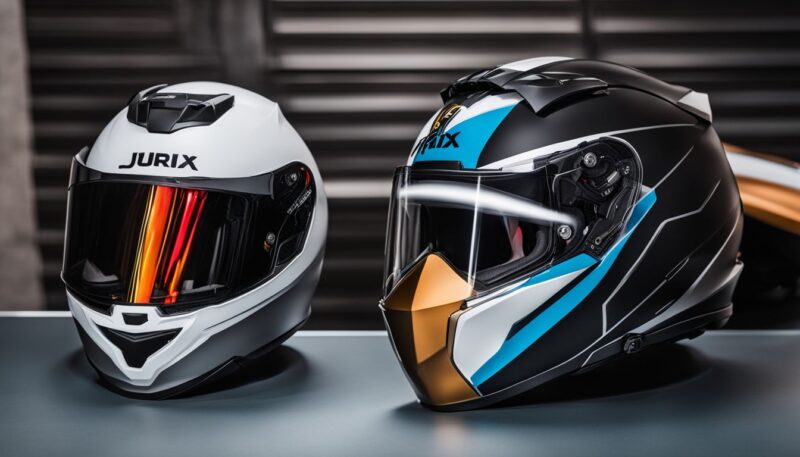
When it comes to choosing between a full-face helmet and a modular helmet, there is an ongoing debate among motorcycle riders. Full-face helmets offer maximum protection with their complete coverage of the head and face.
They have a strong structure that can withstand high-speed impacts during crashes. On the other hand, modular helmets provide a compromise between convenience, breathability, and protection.
They have a unique design that allows riders to flip up the chin bar when they want fresh air or need to communicate with others while stopped. Modular helmets are popular among touring riders and those who need face-to-face communication on the go.
Modular helmets also have advantages for riders who wear glasses since they are easier to wear with eyeglasses compared to full-face helmets. However, it’s important to note that modular helmets may not provide the same level of safety as full-face helmets due to potential weak points in their hinge system.
In summary, the choice between a full-face helmet and a modular helmet depends on personal preference and riding needs. If maximum protection is your priority or you frequently ride at high speeds, then a full-face helmet is recommended.
But if you value convenience, versatility, and breathability without compromising too much on safety standards, then opting for a modular helmet could be the right choice for you.
Keep in mind that regardless of which type of helmet you choose, always ensure it meets relevant safety standards such as DOT or Snell certification for peace of mind on every ride.
Conclusion
In conclusion, when it comes to choosing between a full-face helmet and a modular helmet, it’s important to consider both safety and comfort. Full-face helmets offer maximum protection for all riders, especially at high speeds or in unfavorable weather conditions.
On the other hand, modular helmets provide more breathability and convenience with their flip-up design, making them popular among touring riders. Ultimately, the choice between full-face and modular helmets depends on individual preferences and riding needs.
FAQs
1. What is the difference between full-face and modular motorcycle helmets?
Full-face helmets cover your whole head, giving maximum protection, while modular helmets have a unique hinge system that allows you to flip up the chin bar.
2. Are modular helmets safe like full-face helmets?
Yes, when the chin bar of modular helmet is closed, it offers almost as much protection as a full face helmet. But it can be a bit heavier due to its flip-up mechanism.
3. Can I wear glasses with my helmet?
Both types of helmets come with built-in sun visors or visor slots allowing many riders to comfortably wear eyeglasses if needed.
4. Are there any known issues with these types of helmets?
Full face and Modular motorcycle helmets provide great crash protection but might catch more wind noise at high speeds on long rides compared with open face ones.
5. Which one should I choose for longer bike rides?
On long rides, many riders opt for modular motorcycle helmet because they often offer better fresh air flow when flipped open in up position than what’s offered by full face motorcycle Helmets.
6. How can I keep my visor from fogging up in weather conditions like rain?
You may use anti-fogging sprays or products such as Pinlock visor inserts or Cat Crap lens wax to help prevent your helmet’s shield from being foggy in cold or wet weather.






